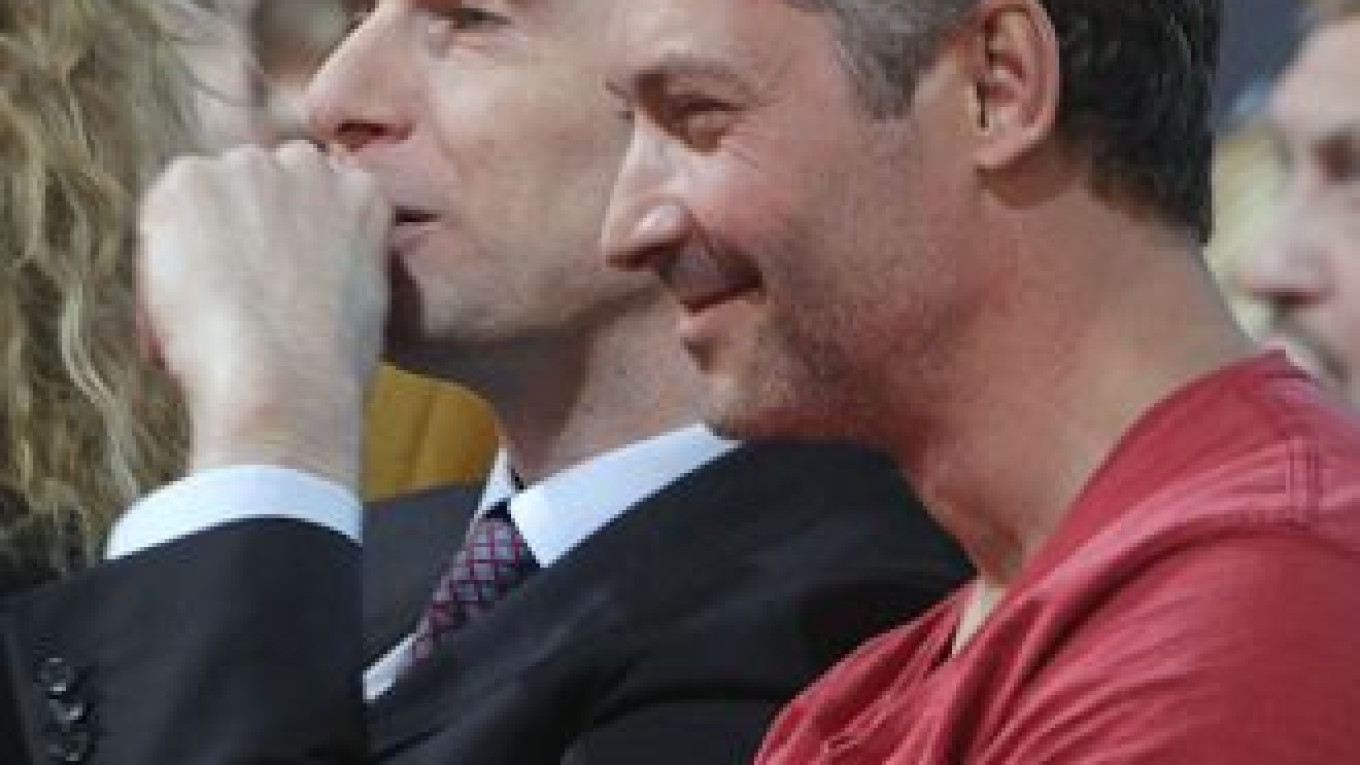A provincial opposition leader believed to have caused a clash between the Kremlin and billionaire Mikhail Prokhorov last year has been targeted in a police investigation that he blames on his war on drug trafficking and corrupt authorities.
Yevgeny Roizman, a former State Duma deputy who runs drug rehab clinics in the Sverdlovsk region, has seen police raid his offices and open three criminal investigations into conditions at his women's clinic since June 17, when a 29-year-old client died after being rushed to the hospital.
On Monday, police opened the third investigation, into criminally negligent manslaughter. No charges have been filed.
Police say clients have told them horror stories — under pressure, Roizman says — about being assaulted and locked up by clinic staff. But Roizman said the woman died because her immune system had been destroyed by drugs. He said his troubles were retaliation against his City Without Drugs Foundation's "successful fight" against drug traffickers linked to the police.
Roizman spoke of daily harassment from the authorities, including checks by everybody from fire inspectors to child welfare officers and sanitation workers.
A special unit of police commandos raided one of the foundation's rehab centers on Sunday, seizing surveillance recordings, computers, diaries and mobile phones, a police spokesman said.
Three of the 13 clients at the clinic were detained, Gazeta.ru reported.
Having friends in high places can often make criminal investigations disappear in this country, but Roizman said he did not need help and he has not asked for it.
"Prokhorov called me immediately to ask what was happening and whether he could help. I told him, 'We're holding up all right and still operating normally,'" Roizman said by telephone.
He also said Prokhorov was "in control of the situation and monitoring it."
But Prokhorov waited a week to publicly defend the man whom he had risked his political career for only last summer, renewing speculation about his independence from the Kremlin just days before he launches a new political party.
Prokhorov's only public response — a carefully worded blog post early last week — said that an investigation into the death of Tatyana Kazantseva need not involve the closure of the City Without Drugs Foundation.
Prokhorov only hinted at a possible political motive behind Roizman's difficulties.
Last summer, however, Prokhorov lost control of the Right Cause party after refusing to oust Roizman from the party, purportedly at the Kremlin's request. The move led to a split in the pro-business party, which both men subsequently left.
During his unsuccessful presidential campaign earlier this year, Prokhorov used the incident to counter accusations that he was a Kremlin puppet put forth to soak up the opposition vote. Roizman served as one of Prokhorov's campaign aides.
Georgy Bovt, a former member of Right Cause's executive committee who opposed Prokhorov as party chief after the split, said Prokhorov's response to Roizman's mounting troubles cast doubt on the sincerity of his earlier support.
"Prokhorov torpedoed Right Cause's Duma campaign for one man. Now he's taking the path of least resistance with regard to the very same man," he said by telephone. "It's completely incomprehensible, especially since the consequences for Roizman this time around could be much graver."
The founding congress for Prokhorov's new Civil Platform party is scheduled for Saturday. The unconventional, non-ideological party aims to help bring civil activists —? like Roizman — to power.
Roizman's clinics have also taken flak from human rights groups, which claim their tough rehabilitation methods are illegal. City Without Drugs activist Yegor Bychkov was jailed in October on kidnapping charges over his treatment of several addicts who were chained to beds as treatment. Bychkov has said the case was retribution by corrupt officials whom he had criticized.
Last year, Roizman embarrassed Sverdlovsk region authorities by accusing low-ranking police officers and a martial arts master who worked for United Russia of attacking residents of Sagra village for trying to expel a suspected drug dealer.
"They did everything possible to prevent people from knowing about Sagra. We did exactly the opposite. … They don't forgive these kinds of things," Roizman said Monday.
A police spokesman denied Roizman's allegations of corruption in the police force, saying Roizman has never filed a complaint and casting him as a down-and-out politician desperate for media attention.
"He got his butt kicked in every election, and he can't bear the fact that the people keep pushing him further from power," spokesman Valery Gorelykh said, Kommersant Vlast reported. "Now he says everyone's bad, from the president to the police."
A Message from The Moscow Times:
Dear readers,
We are facing unprecedented challenges. Russia's Prosecutor General's Office has designated The Moscow Times as an "undesirable" organization, criminalizing our work and putting our staff at risk of prosecution. This follows our earlier unjust labeling as a "foreign agent."
These actions are direct attempts to silence independent journalism in Russia. The authorities claim our work "discredits the decisions of the Russian leadership." We see things differently: we strive to provide accurate, unbiased reporting on Russia.
We, the journalists of The Moscow Times, refuse to be silenced. But to continue our work, we need your help.
Your support, no matter how small, makes a world of difference. If you can, please support us monthly starting from just $2. It's quick to set up, and every contribution makes a significant impact.
By supporting The Moscow Times, you're defending open, independent journalism in the face of repression. Thank you for standing with us.
Remind me later.


